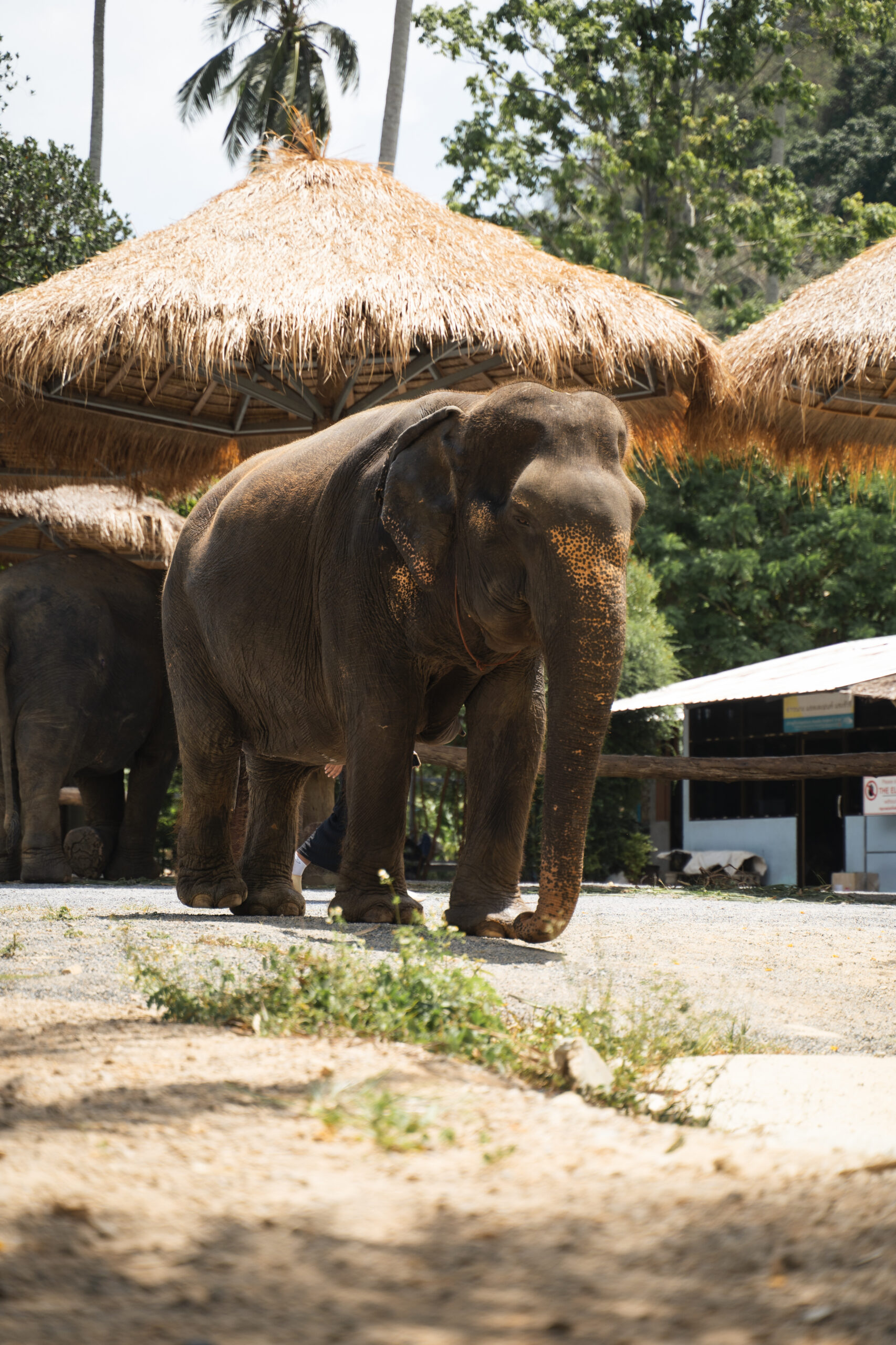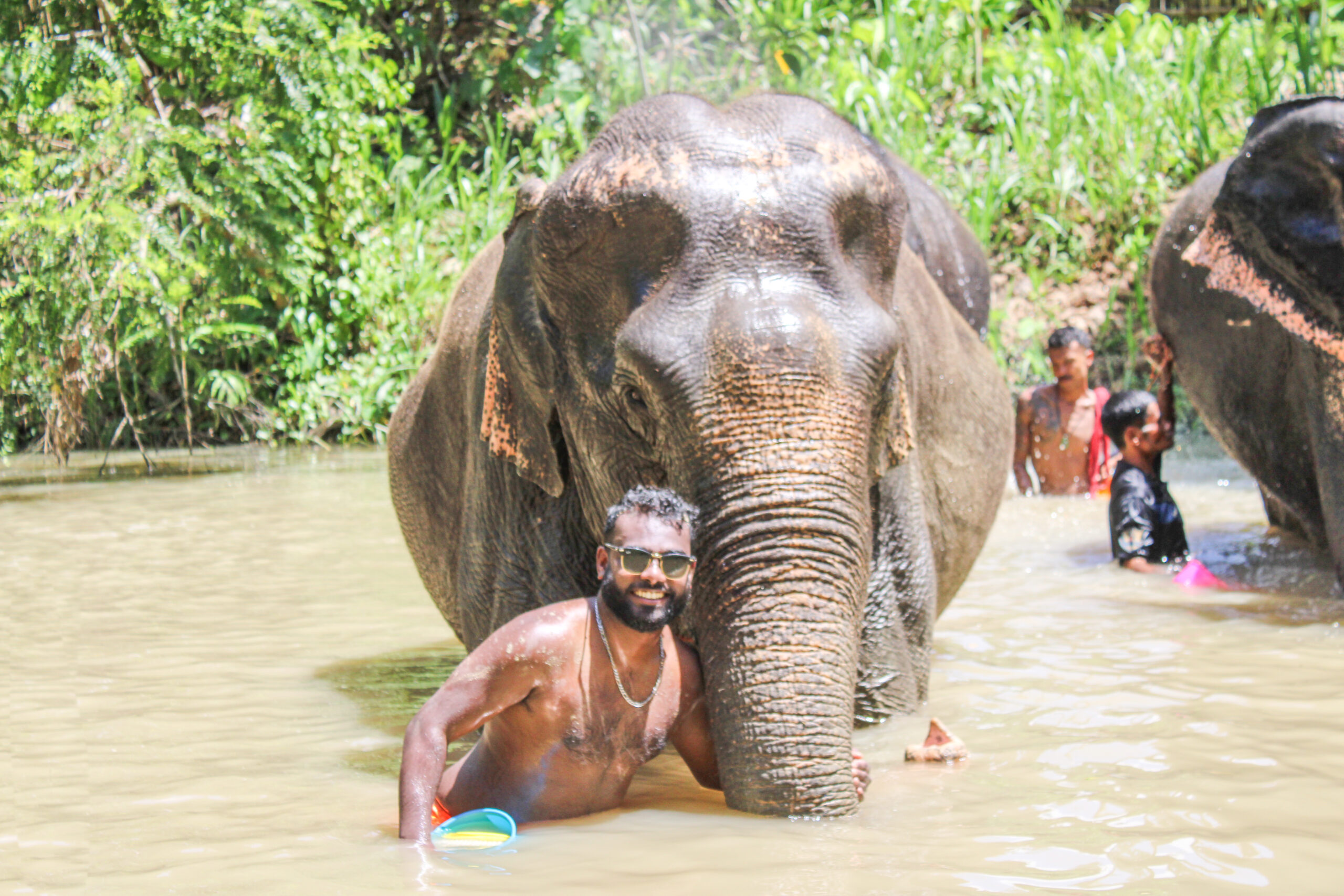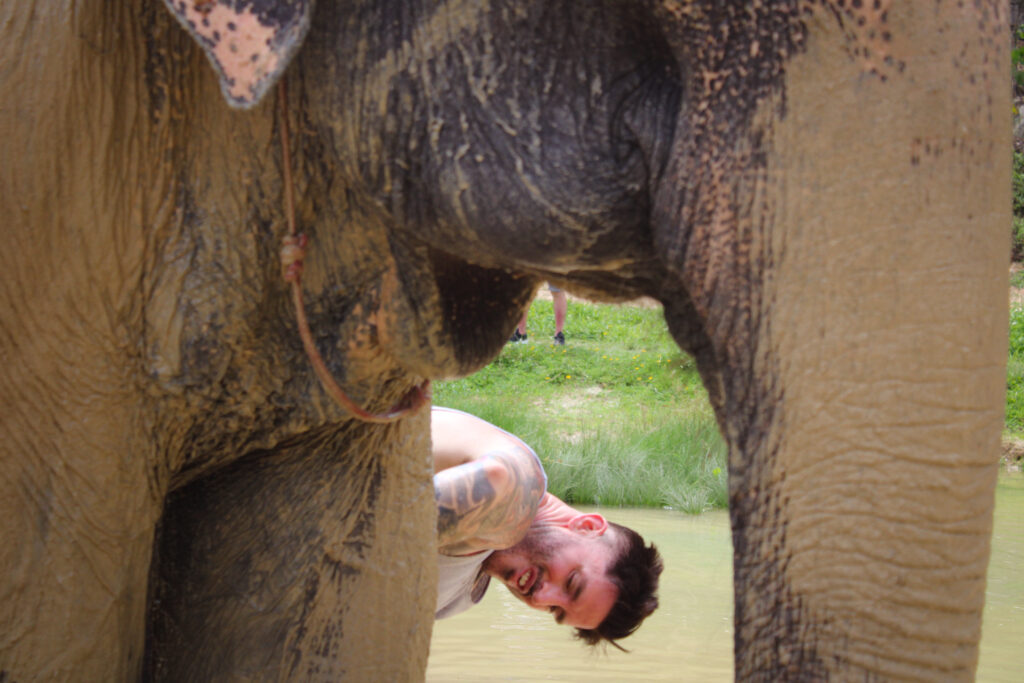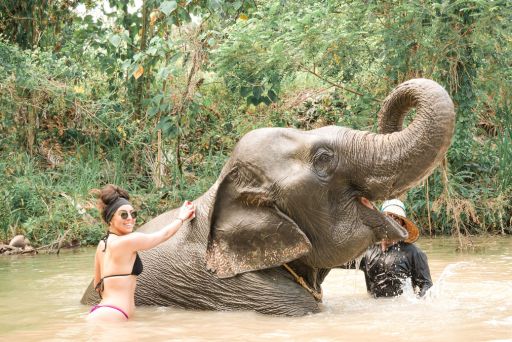
Elephants have played a significant role in Thailand’s history for centuries. These majestic creatures have been revered and admired by the Thai people, symbolizing power, strength, and intelligence. Dating back to ancient times, elephants were used by Thai royalty in warfare, showcasing their dominance and grandeur.
Not only were elephants utilized in battles, but they were also enlisted for important ceremonial and religious events. The Thai people believed that elephants possessed sacred qualities and were revered as sacred animals. As a result, elephants participated in elaborate processions and were adorned with elaborate decorations, reflecting the deep respect and admiration for these gentle giants.
Today, while Thailand’s landscape has changed, the cultural significance of elephants remains strong. The nation recognizes the historical and cultural importance of these creatures and endeavors to protect and preserve them for future generations. The rich history of Elephant Thailand serves as a reminder of their integral role in the country’s heritage, making their conservation efforts all the more crucial.
The Importance of Elephants in Thai Culture
Elephants hold a special place in Thai culture, with a rich history that has spanned centuries. These gentle giants are seen as symbols of power, strength, and prosperity. Elephants have been a part of important cultural events and ceremonies in Thailand for generations, making them an integral part of the country’s identity.
Traditionally, elephants have been used in various aspects of Thai culture, including religious processions, royal ceremonies, and even battles. Their majestic presence and graceful movements have captivated the hearts of the Thai people, who deeply appreciate and respect these magnificent creatures. Elephants are often adorned with vibrant decorations and paraded through the streets during festivals, creating a sense of awe and excitement in the onlookers.
As Thailand continues to modernize, the importance of elephants in Thai culture has not diminished. They continue to be revered and loved, serving as a reminder of the country’s rich heritage. However, alongside the cultural significance, it is important to address the challenges that elephants face in today’s rapidly changing world.
The Challenges Faced by Elephant Thailand
Elephant Thailand faces numerous challenges in today’s world. One of the biggest threats is the loss of their natural habitat due to deforestation and the expansion of human settlements. As urbanization continues to encroach upon the forests, elephants are left with limited space to roam and find food, leading to conflicts with humans.
Another major challenge is the illegal wildlife trade, where elephants are poached for their ivory and body parts. Despite strict regulations and efforts to combat this illegal activity, the demand for ivory remains high in certain parts of the world. This puts elephants at risk of being killed or captured and taken away from their natural environment. Additionally, captive elephants are often subjected to abuse and exploitation, forced to perform in circuses or give rides to tourists.
The Role of Conservation Efforts in Preserving Elephants
Conservation efforts play a crucial role in preserving the majestic elephants of Thailand. These efforts are driven by the recognition of the importance of elephants in the country’s culture and the need to protect their dwindling numbers. Various organizations and government bodies have taken up the cause, implementing measures to safeguard these gentle giants from threats such as habitat loss, poaching, and exploitation.
One of the key aspects of conservation efforts is the creation and management of protected areas for elephants. These sanctuaries provide a safe and natural environment for elephants to thrive, away from human disturbances. They ensure a suitable habitat where elephants can feed, breed, and roam freely, promoting their physical and mental well-being. By establishing these sanctuaries, conservationists aim to preserve the natural behavior and social structures of elephants, thus ensuring the survival of the species for future generations.
The Impact of Tourism on Elephant Conservation
Elephants have long been a major attraction for tourists visiting Thailand. Many travelers are drawn to the opportunity to interact with these gentle giants and witness their majestic beauty up close. However, the booming tourism industry has brought both benefits and challenges to elephant conservation efforts in the country.
On one hand, the demand for elephant-related activities has fueled the establishment of sanctuaries and conservation projects. These initiatives aim to provide a haven for elephants and educate the public about their conservation needs. Additionally, the revenue generated from elephant tourism has provided much-needed funds for elephant welfare and protection programs.
Prominent Elephant Sanctuaries in Thailand

Elephant sanctuaries in Thailand have gained significant recognition and popularity in recent years. One of the most renowned sanctuaries is the Elephant Nature Park in Chiang Mai. This sanctuary welcomes visitors to witness the majestic creatures in their natural habitat and promotes ethical interactions between humans and elephants. Here, visitors can observe rescued elephants, learn about their stories, and even participate in activities like feeding and bathing them. The sanctuary also advocates for elephant conservation and rescue, ensuring that these magnificent animals receive the care and respect they deserve.
Another prominent elephant sanctuary in Thailand is the Elephant Jungle Sanctuary in Phuket. This sanctuary offers a unique opportunity for tourists to get up close and personal with elephants while promoting their well-being. Visitors can participate in activities like walking alongside the elephants and even bathing them in the river. The sanctuary’s emphasis on education and awareness allows visitors to gain a deeper understanding of the challenges faced by these animals and the importance of conservation efforts. This sanctuary serves as a beacon of hope, providing a safe and nurturing environment for elephants in need.
Elephant Conservation Projects and Initiatives
Elephant conservation projects and initiatives in Thailand have gained significant traction in recent years. These efforts aim to protect and preserve the dwindling elephant population while also promoting responsible and sustainable tourism.
One noteworthy conservation project is the Elephant Nature Park in Chiang Mai. Founded by Lek Chailert, the park acts as a sanctuary for rescued elephants, providing them with a haven where they can roam freely. Here, visitors have the opportunity to observe and interact with these gentle giants ethically and respectfully. The park also focuses on educating tourists and locals about the importance of elephant conservation, raising awareness about the issues they face and the steps that can be taken to mitigate them.
Another notable initiative is the Thai Elephant Conservation Center in Lampang. This government-run facility functions as a breeding center, conducting research and implementing programs to increase the elephant population. Additionally, they offer various educational activities and experiences, such as elephant shows and elephant rides, to generate funds for conservation efforts. However, it is crucial to ensure that these activities are conducted in a responsible and non-exploitative manner, with the well-being of the elephants as the top priority.
These conservation projects and initiatives play a vital role in preserving Thailand’s elephants and their natural habitats. Through responsible tourism and advocacy, efforts are being made to address the challenges faced by these magnificent creatures and secure a brighter future for them in the country.
The Benefits of Responsible Elephant Tourism
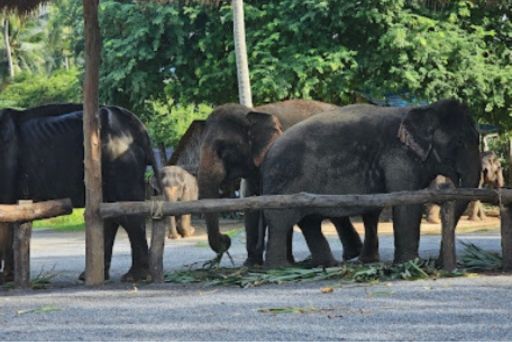
Elephant tourism in Thailand has gained immense popularity over the years, attracting a large number of tourists from all around the world. A responsible and ethical approach to elephant tourism can bring about numerous benefits for both the elephants and the local communities.
Firstly, responsible elephant tourism provides a source of income for local communities, contributing to the economic development of the area. This helps to alleviate poverty and improve the living conditions of the people residing in these regions. Additionally, it creates job opportunities for locals, generating employment in various sectors like tour guides, mahouts, and conservationists. Through responsible tourism practices, the revenue generated can be reinvested into crucial conservation efforts, ensuring the long-term protection and well-being of the elephants.
Frequently Asked Questions
What is the rich history of elephants in Thailand?
Elephants have been deeply woven into Thailand’s culture and history for centuries. They were once an integral part of warfare, transportation, and even royal ceremonies.
Why are elephants important in Thai culture?
Elephants hold a special place in Thai culture and are often seen as a symbol of good luck, strength, and power. They have been revered and respected for generations.
What challenges do elephants in Thailand face today?
Elephants in Thailand face numerous challenges, including habitat loss, poaching, and exploitation for tourism. These factors greatly threaten their survival.
What role do conservation efforts play in preserving elephants?
Conservation efforts are crucial in protecting elephants and their habitats. These efforts involve creating protected areas, promoting sustainable practices, and educating the public about the importance of conservation.
How does tourism impact elephant conservation?
Tourism can both benefit and harm elephant conservation. Responsible elephant tourism can provide funds for conservation efforts, while unethical practices can contribute to the exploitation and mistreatment of elephants.
What are some prominent elephant sanctuaries in Thailand?
Some well-known elephant sanctuaries in Thailand include Elephant Nature Park, Boon Lott’s Elephant Sanctuary, and Elephant Jungle Sanctuary. These sanctuaries prioritize the well-being and conservation of elephants.
Are there any specific elephant conservation projects or initiatives in Thailand?
Yes, there are several elephant conservation projects and initiatives in Thailand. Examples include the Thai Elephant Conservation Center, Elephant Parade, and the Elephant Reintroduction Foundation. These organizations work towards protecting elephants and their habitats.
What are the benefits of responsible elephant tourism?
Responsible elephant tourism allows visitors to witness these magnificent creatures up close while contributing to their well-being and conservation. It promotes ethical practices, educates tourists, and provides necessary funds to support elephant conservation efforts.



